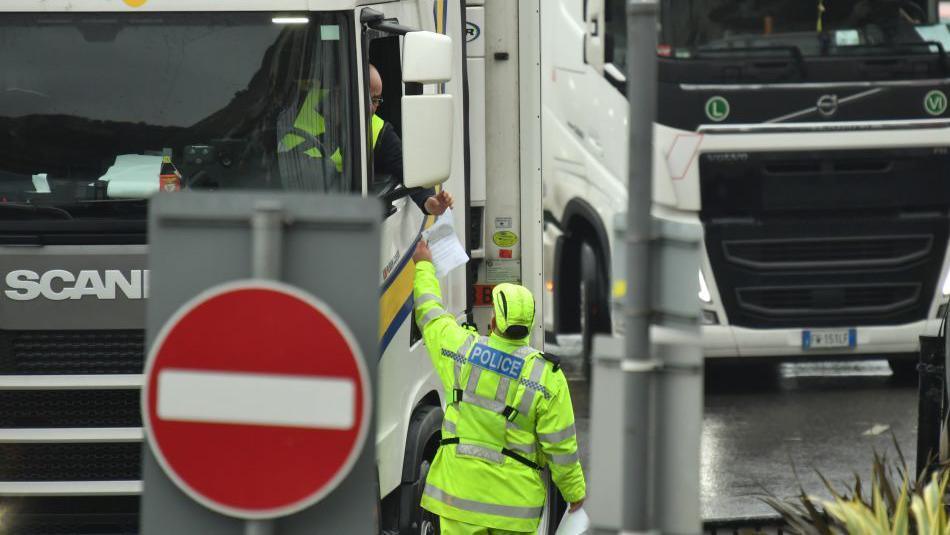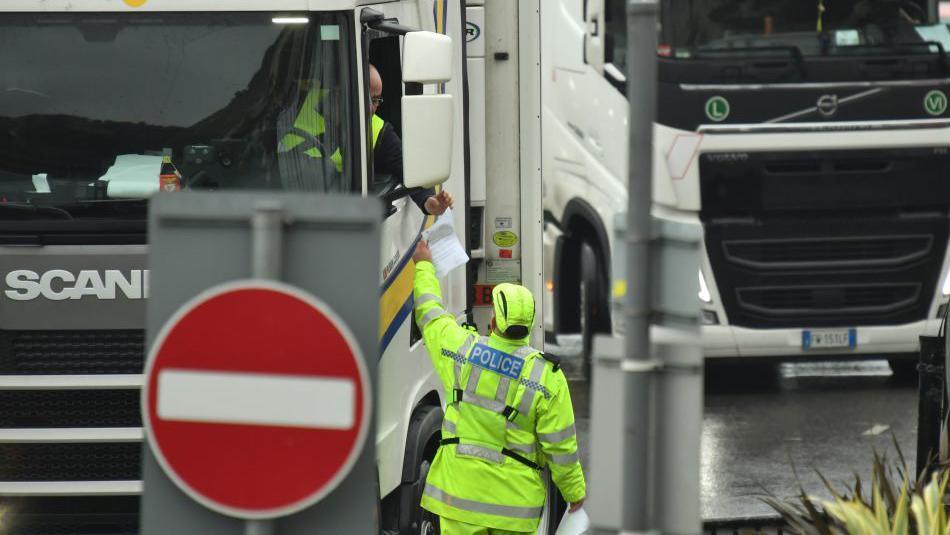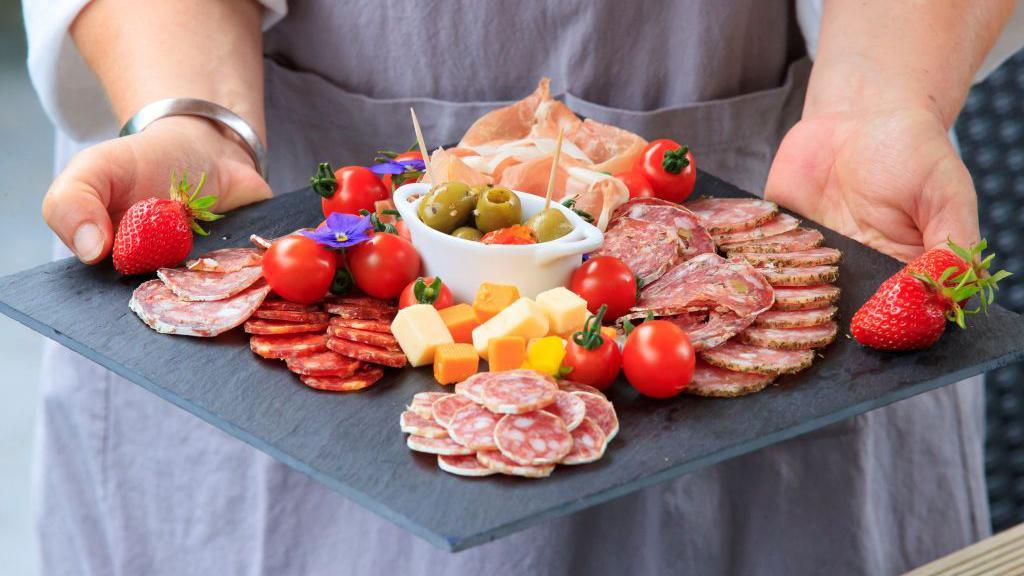Rise in illegal meat trade a danger to UK – report

EFRA's report highlighted "enforcement weaknesses at the border"
- Published
The rise in illegal meat smuggling poses an increasing threat to the UK, a new report has warned.
The Environment, Food and Rural Affairs Committee (EFRA) report stated that the amount of illicit animal products uncovered at the Port of Dover in Kent increased from 13 tonnes between January and April 2023 to 70 tonnes for the same period in 2025.
The report called for change to avoid the same type of foot-and-mouth outbreak which cost Germany an estimated £865.8m (€1bn) earlier this year.
Dover District Council (DDC) leader Kevin Mills said there had been a "mindset change" and an improvement in its working relationships.
The authority is part of DDC, and Mr Mills said it had been raising concerns for more than two years.
"We work tirelessly with organisations, with agencies to try and deliver what we should be doing," he added.
The Parliamentary select committee findings also stated that "this government must lead an effective, mutual restoration" of the relationship which had deteriorated under Conservative rule – one which is "of strategic importance to the UK's security and trade".
It also mentioned evidence of poor-quality standards at the port and "enforcement weaknesses at the border", which have resulted in the creation of a "super highway" of illegal meat goods.
"Responsibility is so fragmented across agencies - such as Border Force, Defra and the Food Standards Agency - that outdated, inefficient ways of working have been allowed to persist, enabling the scale of the crisis to escalate to an intolerable degree," the report said.
'Barely scratching the surface'
The report comes after a councillor responsible for health at the Port of Dover warned that, unless government funding improved, it was "only a matter of time" until the likes of foot-and-mouth or African swine fever arrived.
Speaking in May, Jamie Pout, of DCC, said the health authority was "barely scratching the surface" when it came to suitable checks at the port.
However, the government previously said it would do "whatever it takes" to protect British farmers from disease.
The government added that it had significantly increased seizures of illegal meat products, restricted animal products from EU countries with outbreaks and banned personal meat and dairy imports for EU travellers.
It also said it was investing more than £200m in a new National Biosecurity Centre.
Follow BBC Kent on Facebook, external, on X, external, and on Instagram, external. Send your story ideas to southeasttoday@bbc.co.uk, external or WhatsApp us on 08081 002250.
More stories like this
- Published16 May

- Published17 April
